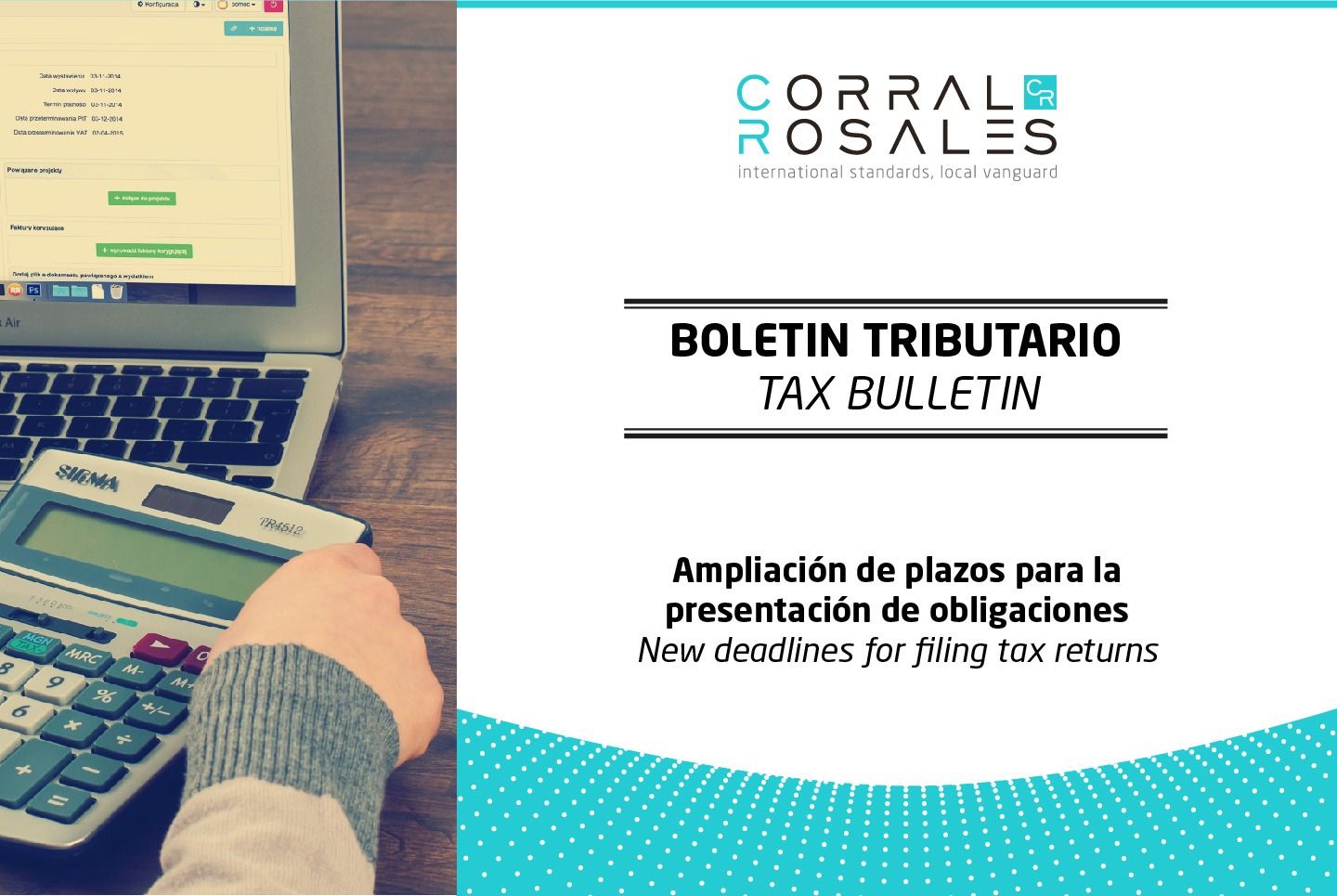By Executive Decree 1021 issued on March 27, 2020, the President of Ecuador, adopted the following tax measures within the state of emergency:
1. Income tax withholding:
The following entities will be required to withhold and pay on a monthly basis income tax over their total taxable income obtained in each month:
Entity activityMonthly income tax withholding rate (%)
Financial institutions under the supervision of the Superintendency of Banks and entities that provide mobile telephone services. 1,75% Entities that have entered into contracts with the Goverment for the exploration and exploitation of hydrocarbons under any modality or, contracts for specific works and services under the Hydrocarbons Law or, complementary petroleum services as well as transportation of crude oil. 1,5%The withholding tax receipt must be issued in the name of the withholding agent and the value withheld will be consider as tax credit for paying the withholding agent’s income tax.
2. Tax payment deadlines:
For this time only, the taxpayers who at this date are considered as:
- Micro-enterprises;
- Those domiciled in Galapagos Islands;
- Those who are regular exporters of goods, or that 50% of their income derived from the export of goods; or,
- Those whose economic activity is:
- The operation of airlines,
- The tourism sector, exclusively those that provide accommodation and/or food services; or,
- The agricultural sector.
Will be able to pay the corporate income tax for the fiscal year 2019 and the value added tax (VAT) to be paid in April, May and June 2020 as follows:
- Payments will be made in 6 installments during the year 2020 in the following percentages: in each of the first two months, the taxpayers are required to pay 10% of the total value; and, in each of the remaining four months, taxpayers are required to pay 20% of the total value.
- These payments will be made according to the ninth digit of Tax ID as follows:
Payment Date
1 10th of each month 2 12th of each month 3 14th of each month 4 16th of each month 5 18th of each month 6 20th of each month 7 22nd of each month 8 24th of each month 9 26th of each month 0 28th of each monthTaxpayers domiciled in the province of Galapagos are able to make the payment until the 28th of each month..
If a payment deadline overlaps with a mandatory rest day or holiday, the deadline shall be the next working day unless that day falls on the following month, in which case the payment deadline shall be anticipated to the last working day of the month.
If the taxpayer makes the payment after the deadlines have expired, he must pay the respective interest and fines in addition to the tax
- The payment of 2019 corporate income tax for the entities described above, will be made from April to September 2020 in the percentages and terms indicated in numbers 1 and 2 of this document.
- The payment of VAT for the months of April, May and June 2020 will be made in the percentages and terms described above, in the following months:
Months of Payment:
April 2020 From April to September, 2020 May 2020 From May to October, 2020 June 2020 From June to November, 2020- Taxpayers subject to the Micro-enterprise Taxation Regime shall file their VAT return on a semi-annual basis. These taxpayers will not be subject to the exception regime detailed above.
Do you want to receive our newsletters with information like the one you just read?
Click here and subscribe.









